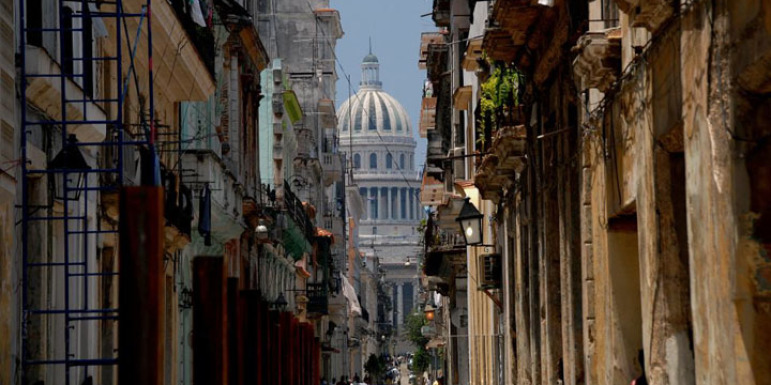
The shifting politics of Cuba policy
There was a time, not too long ago, when any mainstream politician running for statewide or national office in Florida had to rattle off fiery rhetoric against the Cuban government and declare unquestioning faith that the embargo on the island would one day force the Castros from power.
For generations, among Cuban-Americans, once a largely monolithic voting bloc, the embargo was a symbol of defiance in exile — more gospel than policy.
That has changed dramatically in recent years as younger members of the diaspora have staked out views that are increasingly in favor of deepening engagement with the island. Cuba still looms large in Florida politics, and to an extent nationally. But it is far from the clear-cut issue it once was.
That evolution has allowed a growing number of seasoned politicians to call the embargo a failure and argue that ending America’s enmity with Cuba represents the best chance of encouraging positive change on the island. Several prominent Cuban-American businessmen who were once strong supporters of the embargo have changed their stance and become proponents of engagement. The pro-embargo lobby raises a fraction of the money it once did. President Obama now receives more correspondence from lawmakers who favor expanded ties than from those who want to keep robust sanctions.
••
The shift has not been lost on the White House, where officials are deliberating over how much progress they might be able to make on President Obama’s longstanding interest in expanding ties with Cuba. Mr. Obama supported repealing the embargo when he was running for the United States Senate in 2004 but backtracked as a presidential candidate, saying in 2008 that the embargo gave Washington leverage over the Cuban government.
No bold move on Cuba policy would be risk-free. But the political backlash Mr. Obama would face by taking steps to normalize relations is likely to be manageable, even in the Cuban-American community, and well worth the opportunities there would be for expansion in trade, communications and relationships between Americans and ordinary Cubans.
Charlie Crist, the former governor of Florida who is in a tight race for his old job, recently said he was interested in traveling to Cuba, an idea he later scrapped, blaming a busy schedule. Mr. Crist, however, has emphatically said he has come to see the embargo as a relic that must be shelved. Hillary Rodham Clinton wrote in her memoirs, and repeated in a recent interview, that she now favors repealing the embargo, which she called a failure, because it has “propped up the Castros.”
In Florida, members of Congress have staked out positions on Cuba that once would have been considered political suicide. Representative Kathy Castor, a Democrat from Tampa, traveled to the island last year and made a strong appeal for an end to the sanctions, saying the United States was failing to capitalize on economic reforms underway on the island. She feels that far from hurting her politically, the stance has made her more popular among constituents, including Cuban-Americans, who want to play a role in the island’s future.
••
Politics aside, the issue remains deeply personal for the holdouts, Cuban-Americans of that generation say, because it continues to evoke raw feelings about ancestry, homeland and loss. Those sentiments, which have lasted for more than 50 years, cannot be ignored. But they should not continue to anchor American policy on a failed course that has strained Washington’s relationship with allies in the hemisphere, prevented robust trade with the island and offered the Cuban government a justification for its failures.
(From the: The New York Times)

